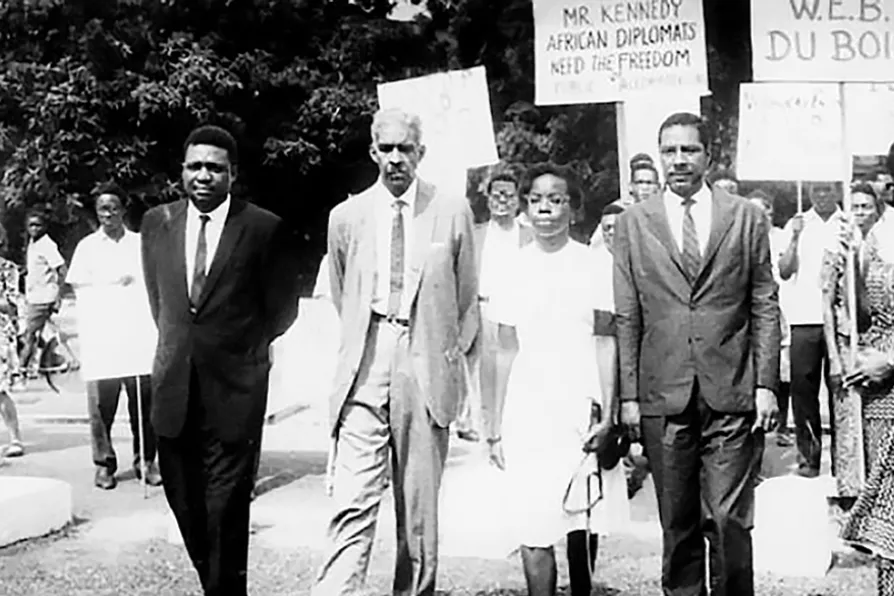For his study of anti-Muslim Muzaffarnagar Riot, HENRY BELL applauds Joe Sacco for a devastatingly effective combination of graphic novel and investigative journalism

 Maya Angelou (far right) protesting outside the US Embassy in Accra, Ghana, alongside Julian Mayfield, Alphaeus Hunton and Alice Windom (1963)
[The New York Public Library/CC BY]
Maya Angelou (far right) protesting outside the US Embassy in Accra, Ghana, alongside Julian Mayfield, Alphaeus Hunton and Alice Windom (1963)
[The New York Public Library/CC BY]
ON August 28 1963, a group of activists gathered opposite the US embassy in the Ghanaian capital of Accra. Inspired by the March on Washington unfolding 5,000 miles away, the protesters carried placards urging the US government to “wipe out racism” and claiming that the US now faced a choice between “civil liberties and civil war.”
In the front row of the demonstration was a face that would later become famous – the American author and poet Maya Angelou.
The Accra march reflected Angelou’s growing engagement with radical politics. Frustrated by American racism and fascinated by African decolonisation, she moved to Egypt in 1961 and then Ghana in 1963. In both countries, she found work as a journalist within the state-controlled media.

Peter Mitchell's photography reveals a poetic relationship with Leeds












